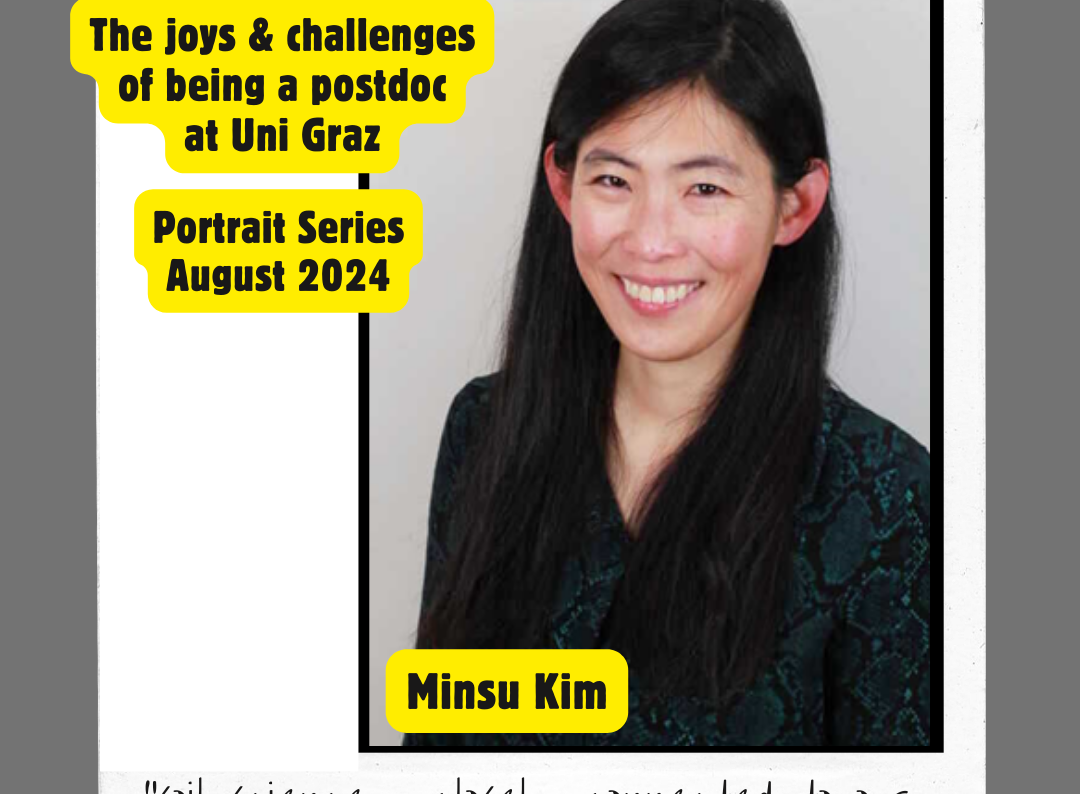This summer, you have the opportunity to get to know some of the brilliant postdoctoral researchers at our university. Our portrait series highlights the diversity within this group of University of Graz research talents - and obviously the fascinating research that they do. Here are four questions for....
Minsu Kim, Institute of Biology
1: Tell us a little about yourself, and your journey to become a researcher at Uni Graz.
I'm Minsu from South Korea, with a background in physics and complex systems sciences. I received my PhD at ETH Zürich, focusing on modelling soils, which I see as the 'ultimate complex system'. During my research, I explored the intricate microbial life in soils and developed its mathematical/computational representations. Soil microorganisms, despite their small size, significantly impact our lives through supporting plant growth and regulating biogeochemical cycles. Existing research on soil microbial functions often lacks theoretical understanding due to the highly complex soil environment. My research aims to address this by focusing on the mechanistic understanding of microbially driven soil processes. This led me to join the team of Prof. Dr. Bettina Weber at Graz, as we have similar research goals and expected collaboration benefits.
2: What are you currently researching, and why do you think it is important (or interesting)?
My research focuses on investigating the roles of microorganisms in soil-atmosphere interactions, particularly in water, carbon, and nitrogen cycling. Before joining the team in Graz, my main area of focus was computer simulations and modelling. I have since expanded my skill set to encompass laboratory and field work, including trace gas exchange measurements, microsensor application, and field data analyses. These new activities form the foundation of my research, which comprises controlled laboratory experiments, field observations, and mechanistic modelling. My aim is to integrate these approaches to develop theoretical frameworks that describe soil microbial activities from the scale of microorganisms to the global scale within the context of soil biophysics and environmental systems sciences.
3: What gives you joy in your everyday work life & what are some challenges?
I am a scientist, as well as a mother to two young children, and a wife to a man who is also a soil scientist. I find it fulfilling that our research focus on soils is closely connected to our everyday experiences, allowing me to share my work with my children. Whether at a sandpit, in the garden, or in the forest, talking with my family about soil related processes, or any natural processes and their underlying mechanisms brings me joy and integrates my work into my personal life. Despite the challenges of time management and achieving work-life balance, particularly for an academic couple with young children, I see this as a temporary hurdle that will be remembered as a positive experience.
4: What's next for you this year/next year?
Now that I am gaining more independence at work, I aim to establish my own group focused on soil system sciences. I have been actively engaged in multiple proposals and am preparing for upcoming calls from various funding bodies. If successful, these proposals will provide opportunities to work with students and/or early postdocs on my own project. In addition, I will take part in teaching activities at the Institute of Biology. Through these efforts, I hope to enhance the University of Graz's curriculum by strengthening soil biophysics and computational environmental sciences, addressing a current gap in the academic program.
Questions: Johanna Stadlbauer, July 2024
Picture credit: Kim/privat
P.S. You can read every portrait in this interview series with Uni Graz postdocs right now!
